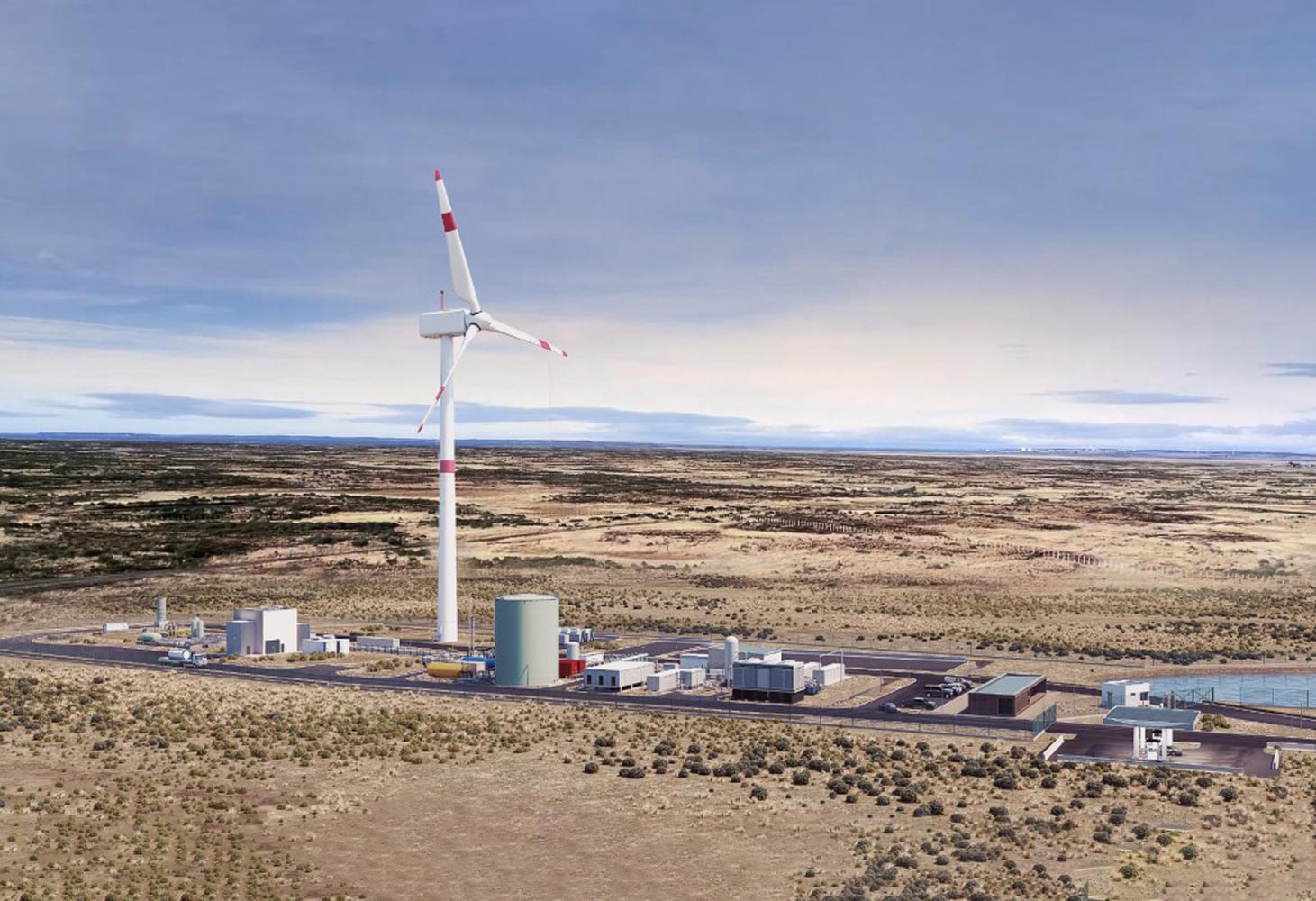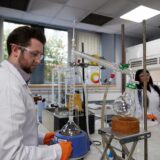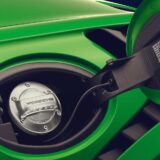
World’s first carbon-neutral fuel pilot plant breaks ground
Siemens Energy and Porsche have joined forces with a number of international companies to build an industrial plant to produce a “virtually” carbon-neutral fuel (eFuel) in Punta Arenas, Chile. In addition to Siemens Energy and Porsche, Highly Innovative Fuel (HIF), Enel, ExxonMobil, Gasco and ENAP are participating in the Haru Oni project.
A pilot plant is initially being built north of Punta Arenas in Chilean Patagonia, which is expected to produce around 130,000 litres of eFuels by mid-2022. The capacity will then be expanded in two stages to around 55 million litres by 2024 and to around 550 million litres by 2026.
The necessary environmental permits have been obtained by the Chilean project company Highly Innovative Fuels. Siemens Energy has also started preparatory work for the next major commercial phase of the project. The ground-breaking ceremony for this pioneering project took place on September 10, 2021, in the presence of Chile’s Energy Minister Juan Carlos Jobet.
Bringing power-to-X to the global market
“I’m pleased that we’re making progress on this international lighthouse project for the hydrogen economy together with strong international partners from business and politics,” said Armin Schnettler, EVP for New Energy Business, Siemens Energy.
“With Haru Oni, we’re bringing our power-to-X technologies to the global market. We’re jointly developing and realising the world’s first integrated and commercial large-scale plant for producing synthetic, climate-neutral fuels. In southern Chile, we’re implementing one of the energy industry’s most exciting projects for the future and driving forward the decarbonisation of the mobility sector. It means we’re making an important and rapidly effective contribution to reducing CO2 emissions in the traffic and transport sector.”
Siemens Energy, which was formed by the spin off of the former Gas and Power division of Siemens Group and includes a 67% share of Siemens Gamesa, provides products, solutions, and services across the entire energy value chain. It is headquartered in Munich, Germany.
Porsche to race with eFuel from Chile
Porsche, which is headquartered in Stuttgart, Germany, initiated the demonstration project and will be using the eFuels in its own combustion engine vehicles. Michael Steiner, member of the Executive Board for Research and Development at Porsche AG, said: “Porsche was founded with pioneering spirit. That’s what drives us, we thrive on innovation. We also see ourselves as pioneers when it comes to renewable fuels, and we want to drive development forward. This fits in with our clear overall sustainability strategy. It means that Porsche as a whole will have a CO2 neutral balance sheet as early as 2030. Fuels produced with renewable energy can make a contribution to this. Our icon, the 911, is particularly suitable for the use of eFuels. But so are our much-loved historic vehicles, because around 70% of all Porsches ever built are still on the road today.”
Steiner explains that the German sports car maker’s tests with renewable fuels “are going very successfully.” eFuels will make it possible to reduce fossil CO2 emissions in combustion engines by up to 90%, Steiner says. “Among other things, we’ll be using the first fuel from Chile in our Porsche Mobil 1 Supercup race cars from 2022.”
Interestingly, while both main project proponents, Siemens and Porsche, are German companies, Germany remains the only country in the European Union (EU) that does not allow 100% synthetic fuels, according to the eFuel Alliance, a stakeholder initiative dedicated to the industrial production of synthetic liquid fuels from renewable energies and sustainable biomass.
Chile has set ambitious targets
Chile has set itself ambitious targets as part of its National Green Hydrogen Strategy. It plans an electrolyser capacity of 5 gigawatts (GW) by 2025, rising to 25 GW by 2030. The aim is to produce the world’s cheapest hydrogen and develop the country into a leading exporter of green hydrogen and its derivatives.
The Haru Oni project takes advantage of the perfect climatic conditions for wind energy in Magallanes province in southern Chile to produce the CO2-neutral fuel using low-cost green wind power. In the first step, electrolysers split water into oxygen and green hydrogen using wind power. CO2 is then filtered from the air and combined with the green hydrogen to produce synthetic methanol, which in turn is converted into eFuel.














